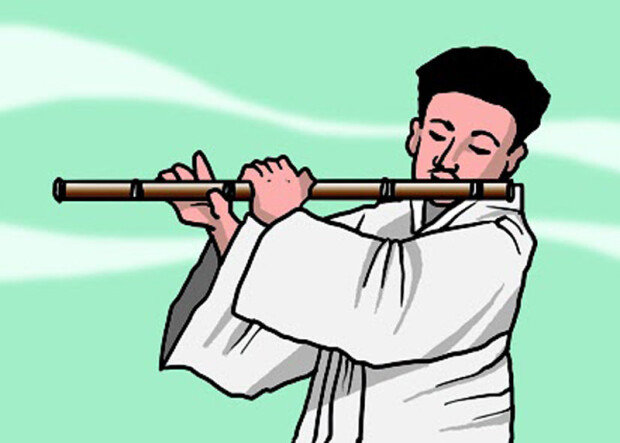Music lives on
Music lives on
Posted May. 01, 2023 07:50,
Updated May. 01, 2023 07:50

“I will live in Ju-hwan’s heart when I pass away,” said Daegeum master musician Park Jong-ki
(1879-1941) on his deathbed. What thoughts had passed the master’s mind as he mentioned that he wished to live in his student’s heart? He must have been happy to transfer the music he had honed throughout his life to his students. Park, who had natural talent and diligence, created Daegeum.
Sanjo (free-style Daegeum solo music) steadily worked his way. He taught his Sanjo way to Han Ju-hwan (1904-1963).
Sanjo is special to musicians. It provides the opportunity to immerse oneself in music deeply but also frustrates musicians at the same time. It helps the musician to continue his career. The power of Sanjo lies in the emotions of former musicians that transferred the music, which the musician. Identifies with as s/he looks back on his own life. Starting with slow music, the Sanjo grows quicker and faster, which is much like the pace of life. The changes in major and minor melodies in each movement reflect new stories in each passage. Park’s Sanjo matured as it was passed on to Han, which became more diverse and abundant being passed on to generations.
In spring this year, I had Han’s Daegeum Sanjo performed on stage in a long time. Han’s performance is solid and intense. I was mesmerized in my 20s by the powerful tones exuding energy from the bamboo frame. At an age older than Han was in his later years, I still pursue the music performed by music masters. Sanjo is unique in that it grows more mature and diverse as it is passed on to generations. That is why even if the musician passes away, his/her mic still lives on.





![아침 공복 따뜻한 물 한 잔, 정말 살 빠지고 해독될까?[건강팩트체크]](https://dimg.donga.com/c/138/175/90/1/wps/NEWS/IMAGE/2026/03/05/133467930.3.jpg)

